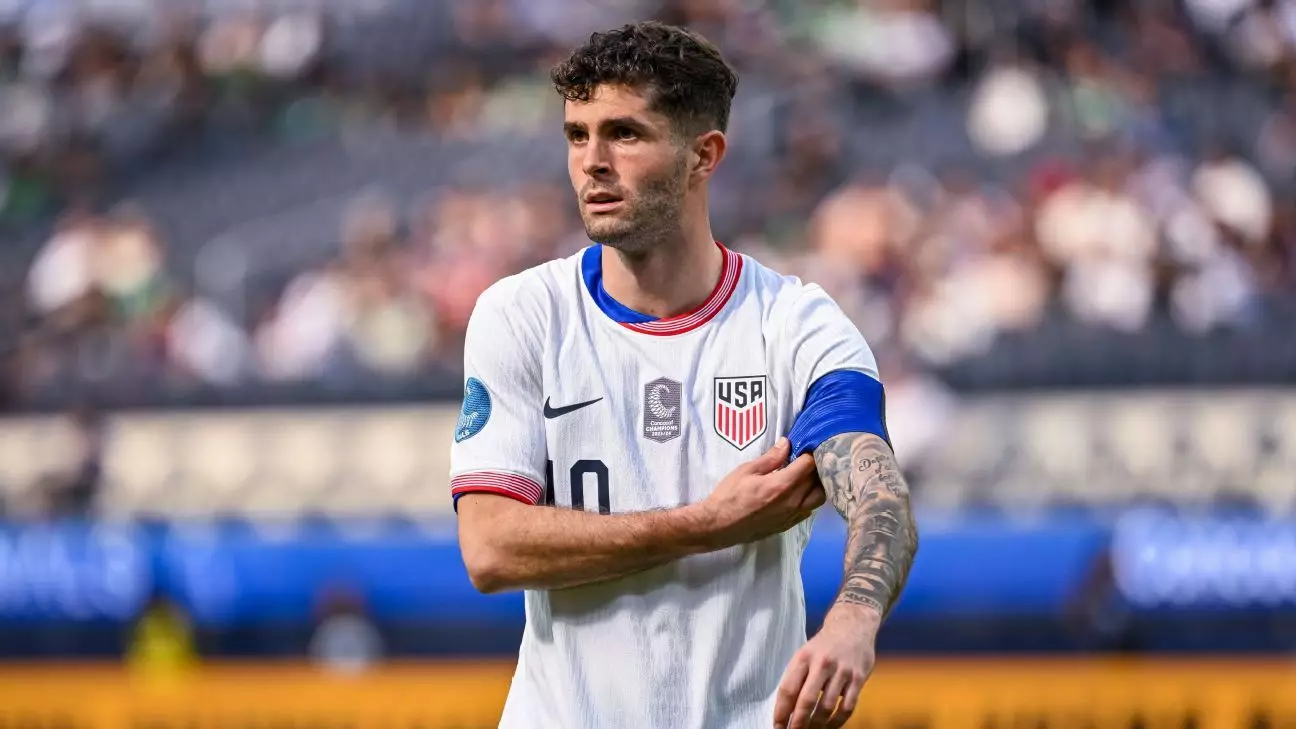In the ever-evolving landscape of soccer in the United States, perhaps no player is more pivotal to the national narrative than Christian Pulisic. The praise he receives from U.S. Men’s National Team (USMNT) head coach Mauricio Pochettino underscores the weight of expectations resting upon his shoulders. Pochettino’s assertion that Pulisic could be the “Lionel Messi of the U.S.” speaks to the undeniable fact that in a country traditionally dominated by other sports, Pulisic is a beacon of hope and talent. With his combination of technical skill and charisma, he has the potential to not only lead the team on the field but also to inspire a new generation of American soccer players.
Pulisic, at just 26 years old, is already establishing a legacy that many players strive for throughout their careers. With an impressive tally of 32 goals and 18 assists in 76 appearances for the national team, he embodies the attributes of a true leader. His experience extends beyond the international stage; playing for major clubs, including Borussia Dortmund and Chelsea, and now AC Milan, has honed his skills and positioned him as one of the most technologically adept players in the game today. His statistics from the past season were nothing short of remarkable, suggesting that he is at the peak of his powers.
Decisions and Sacrifices
However, achieving greatness in sports often requires sacrifices, and Pulisic’s choice to skip the USMNT’s June friendlies and Gold Cup serves as a poignant reminder of the physical and psychological toll professional sports can exact. For many, such decisions may raise eyebrows, but Pochettino’s defense of Pulisic’s choice signals a more profound understanding of player management and welfare. In an era where the pressures of professional soccer can be relentless, prioritizing one’s health and form is not just prudent, it’s essential.
Pulisic’s approach reflects a sophistication in understanding that not every player is the same; different circumstances necessitate tailored decisions. This, in itself, makes him an intelligent figure in the sport — a quality that is often overshadowed by discussions focusing solely on athletic prowess. The United States does not always appreciate the nuances behind an athlete’s choices, but the common thread remains: every player’s goal is ultimately the same — to compete at the highest level and represent their nation with pride.
National Pride and Identity
Pochettino’s insistence that members of the USMNT should take immense pride in representing their country is a vital aspect of building a competitive soccer culture. Players like Pulisic have the unique ability to affect this culture, emphasizing the honor that comes with wearing the national jersey. South American and European players have notoriously been depicted as fervently motivated to don their national colors; if American athletes can channel even a fraction of that passion, the possibilities for the future of U.S. soccer are boundless.
When Pochettino refers to the desperation felt by top players when they represent their countries, it ignites a necessary conversation about national identity within American soccer. In instances where younger players look up to icons like Pulisic, the notion of national pride transforms from abstract concept to tangible energy. As the USMNT prepares for the upcoming Gold Cup and friendly matches against teams such as Turkey and Switzerland, instilling this sense of urgency and pride will be crucial for the team’s success.
The Future of American Soccer
With the looming prospect of the 2026 World Cup on the horizon, the stakes couldn’t be higher for Pulisic and the USMNT. The road to that prestigious event is paved with challenges, but with leaders like Pulisic, there is a palpable sense of optimism in American soccer. It is not merely about winning games; it is about creating a legacy and inspiring future generations. The example set by Pulisic can ignite a passion that drives young players to pursue soccer as a serious sport and contributes to the growth of the game across the nation.
In essence, Christian Pulisic represents more than just a name on a roster. He is a living symbol of American soccer’s evolution, and as he continues to display excellence on and off the pitch, he embodies the spirit of a nation eager to carve its place in soccer history. The weight of this expectation may be heavy for any player, but for Pulisic, it seems to fuel his determination to reach new heights, not just for himself but for his country.

